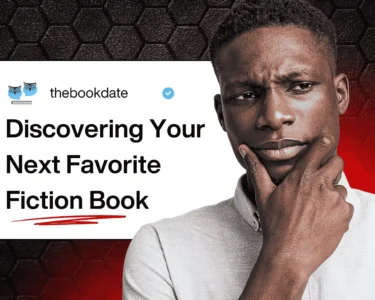Have you ever found yourself crying over a character who doesn’t exist or dreaming about a world that lives only in words? That’s the power of fiction. In an age driven by facts and data, it’s easy to overlook the deep, transformative magic of storytelling. But fiction is more than escapism , it’s a mirror to our souls, a lens to see the world anew. In this blog, we’ll dive into the art of storytelling and uncover why fiction matters, how it shapes who we are, and why it deserves a central role in our lives.
The Power of Fiction: More Than Just Entertainment
Fiction is not just a form of entertainment , it’s a tool for empathy, self-reflection, and social connection. Research from psychologists like Keith Oatley and Raymond Mar suggests that reading literary fiction improves our ability to understand others’ emotions and perspectives. This is often referred to as the “theory of mind.”
Think of novels like To Kill a Mockingbird by Harper Lee or The Kite Runner by Khaled Hosseini. These aren’t just compelling stories , they shape our understanding of justice, privilege, identity, and loss. Fictional stories have the unique ability to make us feel what others are feeling, building compassion in ways facts alone cannot.
Storytelling as a Bridge Across Cultures and Time
One of the most profound aspects of fiction is its power to transcend barriers of time, geography, and culture. Whether you’re reading ancient Greek epics or modern Nigerian novels, storytelling is a universal language.
Books like Things Fall Apart by Chinua Achebe and One Hundred Years of Solitude by Gabriel García Márquez don’t just tell stories , they introduce readers to entire worldviews and traditions. Fiction becomes a bridge, allowing readers to walk in someone else’s shoes, fostering deeper global understanding.
Fiction and Identity: Stories That Reflect Who We Are
Many readers turn to fiction to find themselves , especially those from underrepresented or marginalized communities. Representation matters. Seeing characters who look, speak, or love like you can be affirming, healing, and empowering.
Take Angie Thomas’s The Hate U Give or Ocean Vuong’s On Earth We’re Briefly Gorgeous. These novels offer deeply personal narratives that resonate with countless readers. Inclusive storytelling helps shape identity, spark conversations, and challenge harmful stereotypes.
At The Book Date, we celebrate such transformative stories , curating reads that reflect a rich tapestry of human experience.
Imagination: The Lifeblood of Innovation
Einstein once said, “Imagination is more important than knowledge.” Fiction fires up the imagination like nothing else. Through stories, we explore dystopias, alternate histories, and galaxies far, far away. Science fiction, fantasy, and magical realism push the limits of what we think is possible.
Books like Dune by Frank Herbert and The Left Hand of Darkness by Ursula K. Le Guin stretch our minds and ignite curiosity. These stories aren’t just fun , they inspire innovation, challenge norms, and expand creative thinking.
If you’re building worlds or businesses, fiction trains your brain to think bigger.
Healing Through Stories: The Emotional Role of Fiction
Fiction offers solace during difficult times. Bibliotherapy , the use of books for healing , is now a recognized psychological tool. Whether you’re grieving, anxious, or simply feeling lost, stories can be a powerful form of emotional support.
Titles like A Man Called Ove by Fredrik Backman or The Midnight Library by Matt Haig explore themes of loneliness, redemption, and the meaning of life. Through these characters’ journeys, we find pieces of our own healing.
Fiction’s Role in Childhood Development
From fairy tales to young adult novels, fiction plays a foundational role in shaping children’s minds. Reading fiction enhances vocabulary, boosts brain connectivity, and nurtures empathy at a young age. Children who read stories develop better emotional intelligence, creativity, and communication skills.
Books like Charlotte’s Web, Harry Potter, and Wonder don’t just entertain , they teach values like friendship, courage, and kindness. At The Book Date, we recommend starting young readers on a literary journey early to help build resilient, thoughtful individuals.
The Future of Fiction: Digital, Diverse, and Democratic
With the rise of audiobooks, e-books, and platforms like Wattpad, fiction is more accessible than ever. This democratization of storytelling means more voices, more diversity, and more creative experimentation.
From queer romance novellas to Afrofuturist sagas, contemporary fiction is reshaping what it means to tell a story. Readers today are seeking authentic voices, niche genres, and characters that reflect their lived experiences.
The Book Date stays ahead of the curve, spotlighting emerging authors, indie publishers, and cross-genre masterpieces that redefine fiction for the modern reader.
FAQs: Why Fiction Still Matters
Q1: Isn’t reading fiction just a waste of time compared to nonfiction or self-help?
A: Absolutely not. Fiction enhances cognitive empathy, creativity, and mental health. It’s just as impactful , and sometimes more , than factual texts.
Q2: How can I get into reading fiction if I haven’t read much before?
A: Start small , try short story collections or highly recommended popular novels. Explore genres you enjoy in movies or shows and find books that align. Check out The Book Date’s curated beginner guides.
Q3: What are the best fiction genres to explore first?
A: Contemporary fiction, literary fiction, and young adult fiction are often great starting points. From there, explore historical fiction, romance, mystery, or speculative fiction depending on your interests.
Conclusion: Fiction Is Essential to Being Human
At its core, fiction isn’t just about stories , it’s about us. Fiction helps us dream, connect, heal, and grow. It challenges our assumptions, teaches us empathy, and reminds us of our shared humanity.
As readers at The Book Date, we know that fiction fuels the heart of who we are. Whether you’re picking up a dusty classic or diving into a viral debut novel, remember: stories shape the world.
📚 Ready to explore the power of storytelling?
Check out our best fiction reads @thebookdate.






